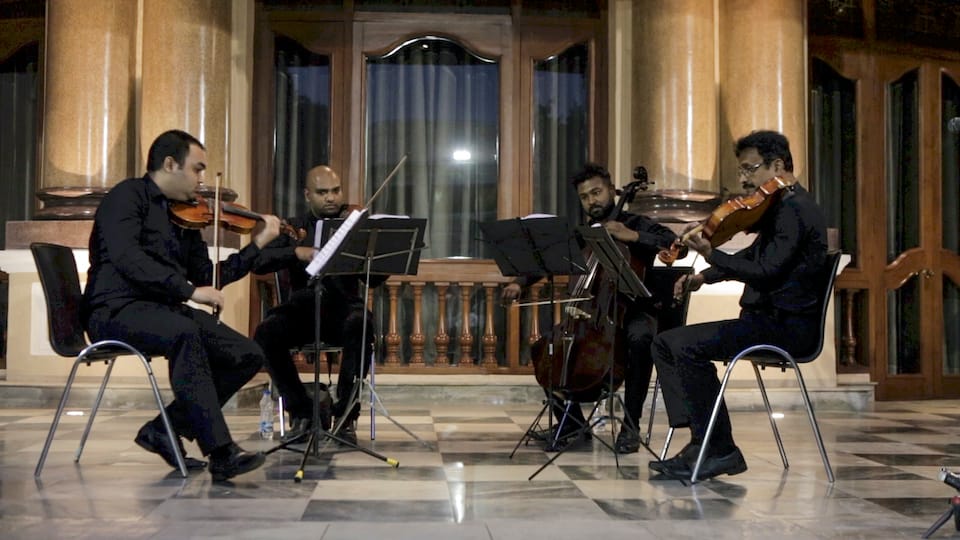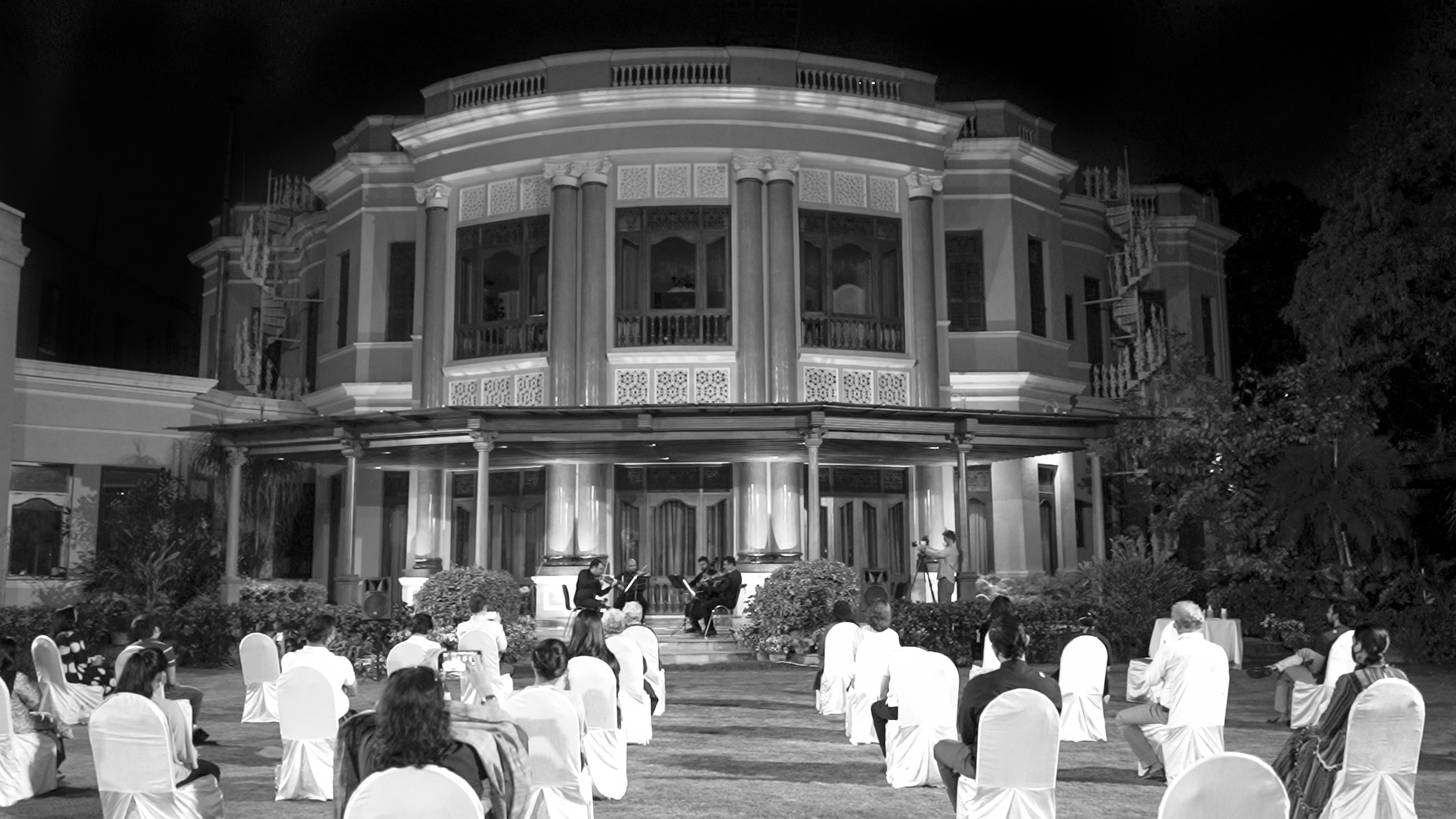The small ensemble

Having written reviews for the newspapers and some magazines for many years, I began to develop a style that was unconsciously designed to earn kudos for my knowledge and literary wit. People looked forward to reading them and that gave me a kick. Not very nice. I came to the point when I realised that it was doing nobody any good, least of all myself. As I grew older, I began to wish that I could go to a concert, relax and enjoy the performance or, if it was not enjoyable to be free to walk out discreetly (or not) during a break. Or even not go, as I invariably knew what to expect. So, I stopped writing reviews.
And so, in the course of a conversation with my adult piano student of one year, I expressed the opinion that what was really needed here, was not symphony orchestras but smaller ensembles where musicians were able to work together, in order to savour the music for this genre. Not to perform at concerts alone, but for the sheer joy of exploring and perfecting the works they addressed of which there are so many. Exploring history through music; communicating in a language without words. Being a visionary and inspired by my passion, he suggested that I go ahead and get started. Being Varun Thapar he offered to sponsor the project.
And so, in August 2019, EffemEnsemble was founded with two violins, a viola, cello and oboe/cor anglais. The first presentation was held in the style of European concerts in the ‘Stately Homes’ abroad, featuring music from the baroque era (Handel) to the modern, four oboe miniatures by British (Ceylon born) composer H S Mohamed.
Varun opened his stately home to us and in this magnificent venue we held our first ‘concert’. We planned more, looking forward to intimate concerts in St John’s Church, The Goethe Institute and school concerts. In 2020 March 3rd, we played with Jennifer Heemstra and four visiting clarinettists in Kolkata, and then COVID-19 struck! So unfair! All bookings were cancelled and only practices continued.

And this was when I realised that perhaps the pandemic had its ‘good’ side. We were compelled or free to explore without haste or that evasive goal people are always chasing. And, we had time on our hands.
Undaunted, practices continued, sanitized, masked and perforce socially-distanced, which meant meeting on Thursdays in a flat. We held on to our core membership of four strings and one reed player! During this musically turbid period, we experienced some changes; our young second violinist left, to be replaced by another, who in turn is replaced by our present Apratim, the ‘rock’ violinist who is our second fiddle. First violin Pallab Pramanick, is also a competent pianist and is a ‘rock’ of a different order, read Gibralta. Then there is Subroto Pramanick, viola. and our cheerful and talented cellist Somnath Makhal. Our Oboist/English Horn is the versatile Vache Tadevosayan. The music is chosen by us from a cross section of Baroque to Modern.
On the 21st February, we performed on the patio of Varun’s house, to a socially distanced invited audience of thirty friends and music students on socially-distanced seats on his lawn. Our host’s attention to the details of presentation were impeccable. The musicians played on the patio which served as an impressive stage.
Following brief introductions by the founders, the concert began with the Sonata for cor anglais and strings by Benedetto Marcello. Our reed player was indisposed so they played a rearrangement of the work for strings only. The four movements were: Andante, Allegro, Grave, Allegro. The second work was the haunting Four Miniatures for Oboe and Strings, by the Ceylon born British composer, HS Mohamed. Once again transcribed for strings the four movements were: Invocation, Pastoral, Scherzo and Burlesque. The Quartet in F major, op.18 No. 1 by Beethoven was chosen for its dynamic introduction and its feasibility at this stage for our group. The movements: Allegro, Adagio affettuoso ed appassionato, Scherzo and Allegro. Alexander Borodin’s Notturno from Prince Igor was followed by the Adagio for Strings, by Samuel Barber. As an encore, they closed with the light Tango ‘Por una cabeza’ by Carlos Gardel.
The sun had set, a moon was up and guests and performers mingled on the lawn, sipping wine and delicious snippets while discussing possible future concerts.





